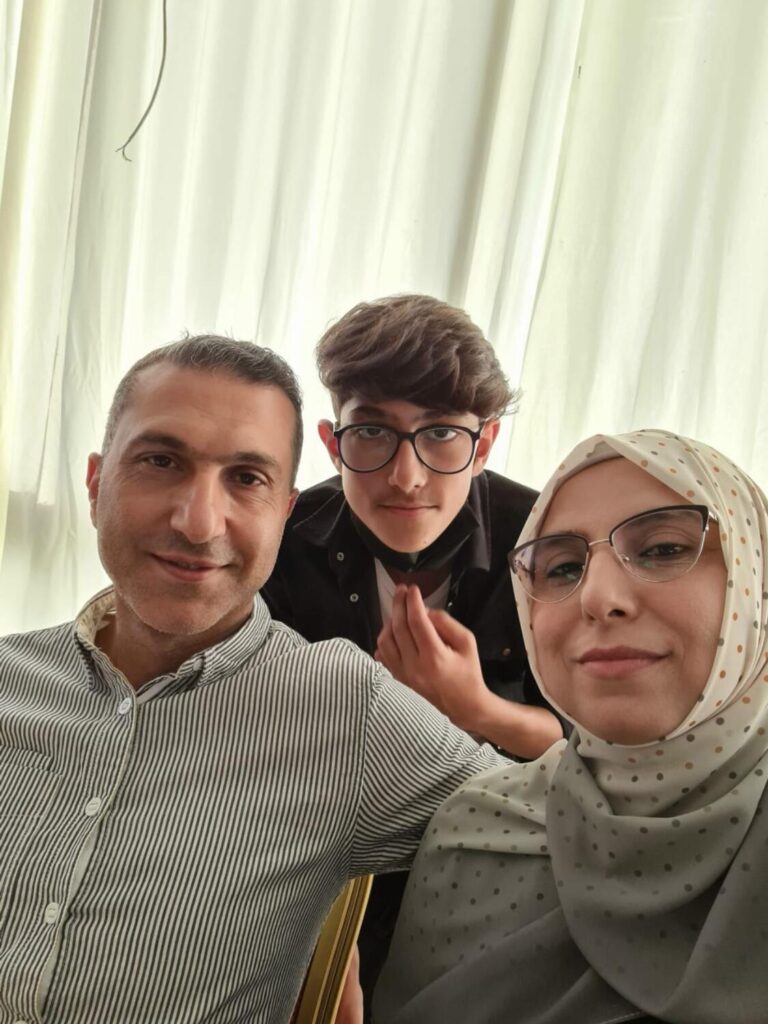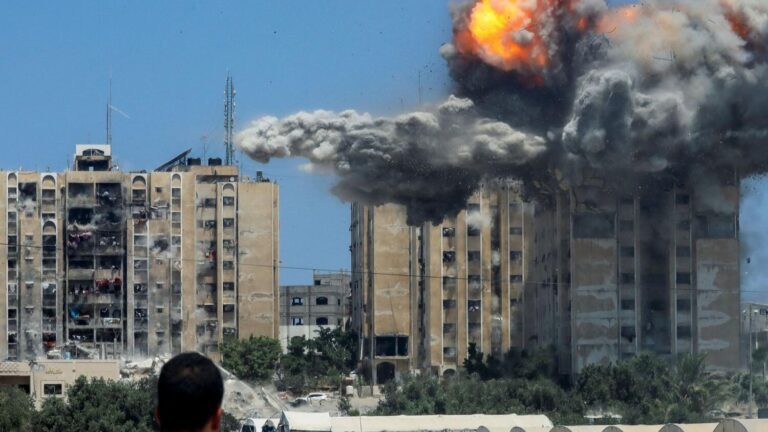The past 10 months have been an emotional whirlwind filled with fear and uncertainty for Palestinian expatriates in the UAE. Since the war in Gaza began on October 7 last year, they have anxiously watched their families endure relentless hardship back home.
Reem, a Dubai resident, has faced a personal battle during these months. Her sister’s house in Gaza was obliterated by airstrikes, leaving her family with nothing. “The house was built from my sister and her husband’s life savings,” Reem said. “Her gold that our late mother gifted us before she passed – along with all their memories, clothes, everything you can think of – are all gone.” Now, her sister and seven children, including two married with their own kids, are living in tents.
“I just want my sister and her children to stay alive,” Reem implored, adding: “After this war is over, I want to see them in person, not visit their graves.”
The constant stream of war news is unbearable for Reem. “I couldn’t watch the news. I’m scared to even open messages on my phone. I fear I’d see the name of my sister and her kids among the martyred list.” Despite her fears, Reem knew she had to remain strong for her family.
Tragedy Before Celebration
Salma, Reem’s cousin, is also deeply affected by the Gaza crisis. Salma’s three cousins have had to move in together after losing their homes. “One of my cousins lost her 27-year-old son,” Salma shared. “It was the worst death in our family. His wedding was set for October 30, but he died on October 25.”
Despite the tragedy, the cousins chose to stay united. “If we get bombed, we would all die together; we didn’t want anyone to stay alone,” they said.
Daily Struggles
The daily lives of Reem and Salma’s families in Gaza are grim. “Their children no longer attend school, and their homes and livelihoods have been destroyed. They just want to stay alive and keep their kids alive – that’s the hardest thing they’re going through,” Salma said.

Both women provide financial and emotional support to their loved ones in Gaza. “I send them money when I can. They don’t always receive it, but I’m doing the most I can,” Salma said. Reem speaks to her sister and nieces and nephews daily, “to remind them that I love them and to try to comfort them as best I can.”
Shared Grief
Sami Salman, another Dubai resident, echoed the sentiments of many Palestinians abroad. “I try to communicate with them via the internet. Sometimes I can reach them, sometimes I can’t because the internet is powered by solar panels which are not always available.”
Sami’s grief is palpable. “I lost someone,” he said. “Actually, there is no Palestinian who hasn’t lost someone.”
Sami managed to evacuate some family members to Deir al-Balah, a relatively safer area, but most of his family remains in Gaza, relying on dwindling aid supplies. “The aid that comes is what my family lives on. Sometimes they can’t reach it because it is either stolen or they try to sell it, but they try to get by.”
Essential Needs Unmet
The lack of access to basic supplies and hygiene has compounded the suffering of Sami’s loved ones. “In these long 300 days, there were 60 days my family couldn’t reach the appropriate food supplies. Either they live with the help of neighbors or on canned goods. They suffer from lack of detergents and papers, to the point that they cannot clean the place they live in or themselves, meaning their most basic rights do not exist,” Sami lamented.
Life Stopped on October 7
Ahmed Ziyad described the last 300 days as an unimaginable ordeal. “This is something I can never get used to or come to terms with,” he told Khaleej Times. “The trauma of the last several months has taken a devastating toll,” he added, noting his “life stopped on October 7.”
Consumed by grief and anxiety, Ahmed said: “I’m glued to the news, constantly reminded of the pain and suffering – 300 days, it’s unimaginable, it breaks my heart every day.”


